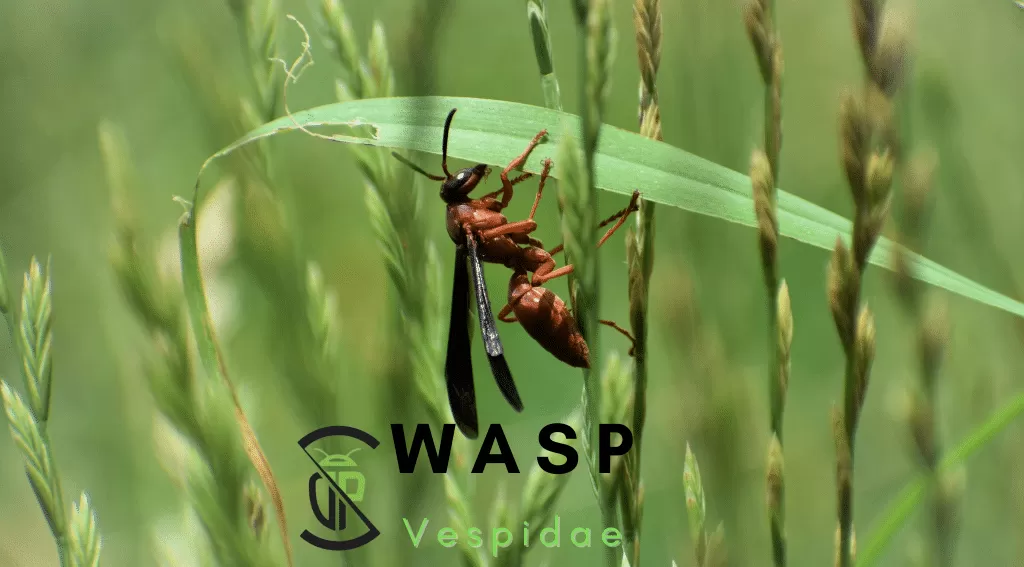Wasps in South Florida

Wasps are a common pest in South Florida, known for their painful stings and aggressive behavior. At Dade Pest Solutions, we specialize in effective wasp control and prevention to keep your home and outdoor spaces safe. This guide will help you understand, identify, and manage wasp infestations.
Common Wasp Species in South Florida
Paper Wasps
- Identification: Slender bodies, about 0.75 to 1.5 inches long, with yellow, brownish, or reddish-brown markings.
- Habitat: Build umbrella-shaped nests from paper-like material, often found under eaves, in attics, and on tree branches.
- Behavior: Social wasps that can be aggressive if their nest is disturbed.
Yellowjackets
- Identification: Black and yellow markings, similar to hornets but with more defined stripes.
- Habitat: Build papery nests in protected areas like wall voids, attics, and underground burrows.
- Behavior: Highly aggressive and territorial, especially around their nests.
Mud Daubers
- Identification: Long, slender bodies with a narrow waist, typically black or metallic blue.
- Habitat: Build solitary nests from mud, often found on walls, ceilings, and in sheltered outdoor areas.
- Behavior: Generally non-aggressive and rarely sting unless provoked.
Cicada Killer Wasps
- Identification: Large wasps, up to 2 inches long, with a rust-colored head and yellow and black stripes.
- Habitat: Dig nests in the soil, creating tunnels up to 6 inches deep.
- Behavior: Passive-aggressive; they use their stinger primarily to paralyze prey.
Red Wasps
- Identification: Reddish-brown bodies with yellow bands on the abdomen, about 1.5 inches long.
- Habitat: Build large nests around human structures, often under eaves or in attics.
- Behavior: Social and defensive; females will sting to protect their nests.
Signs of Wasp Infestation
- Visible nests in or around your property
- Frequent sightings of wasps, especially near food sources or water
- Increased wasp activity around garbage cans, compost piles, or outdoor dining areas
- Buzzing sounds near walls or ceilings
Health Risks and Property Damage
- Stings: Can cause pain, swelling, and in severe cases, anaphylactic shock.
- Allergic Reactions: Some individuals may experience severe allergic reactions to wasp stings, requiring immediate medical attention.
- Property Damage: Nests built in wall voids or attics can cause structural damage over time.
Wasp Control Solutions
At Dade Pest Solutions, we offer comprehensive wasp control services:
- Inspection: Thorough assessment to identify wasp species and locate nests.
- Treatment: Safe and effective removal of nests using specialized equipment and insecticides.
- Prevention: Implementing measures to deter future infestations, such as sealing entry points and removing attractants.
- Ongoing Monitoring: Regular check-ups to ensure long-term wasp prevention.
Prevention Tips
- Seal Entry Points: Close gaps and cracks around windows, doors, and eaves.
- Remove Attractants: Keep food and sugary drinks covered when outdoors.
- Maintain Cleanliness: Regularly clean garbage cans and compost areas.
- Inspect Regularly: Check for nests in early spring and remove them promptly.
FAQ
Q: How can I identify a wasp nest?
A: Wasp nests vary by species but are often found in sheltered areas. Paper wasps build umbrella-shaped nests, while yellowjackets create papery nests in protected spots or underground.
Q: Are wasps dangerous?
A: Yes, wasps can be dangerous due to their painful stings, which can cause allergic reactions in some individuals.
Q: How can I prevent wasps from nesting on my property?
A: Preventative measures include sealing entry points, removing food and water sources, and regularly inspecting for nests.
Q: Can I remove a wasp nest myself?
A: It is not recommended to remove a wasp nest yourself due to the risk of stings. Professional pest control services ensure safe and effective removal.
Q: What should I do if I get stung by a wasp?
A: Clean the sting site, apply ice to reduce swelling, and take an antihistamine if needed. Seek medical attention if you experience severe reactions like difficulty breathing or swelling of the face and throat.
Q: How often should I schedule pest control treatments for wasps?
A: For optimal protection, we recommend seasonal inspections and treatments, especially during peak wasp activity in spring and summer. For more information or to schedule a free evaluation, contact Dade Pest Solutions today. Our team of experts is dedicated to keeping your home and outdoor spaces wasp-free and ensuring your safety and peace of mind.
